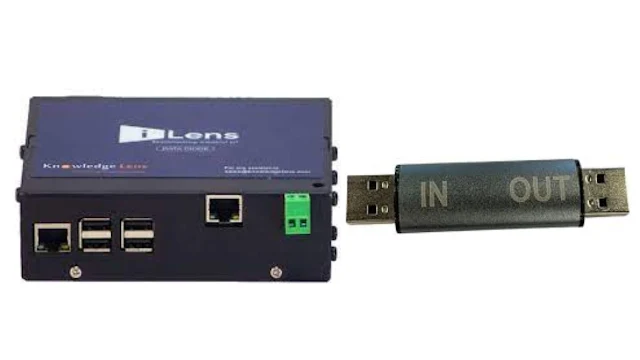What is USB Data Diode?
In an era of increasing cybersecurity threats and data breaches, organizations across various sectors are seeking robust solutions to protect their sensitive information. One such solution that has gained prominence is the USB data diode. This blog post will delve into the concept, working principle, and advantages of USB data diodes, highlighting their role in enhancing security and data protection.
USB data diode is a hardware device designed to ensure one-way data transfer between systems while maintaining strict security measures. It is primarily used to enable secure and controlled movement of data from an untrusted or less secure network to a trusted or highly secure network. By enforcing one-way communication, USB data diodes prevent any potential backflow of data or unauthorized access.
Working Principle
The working principle of a USB data diode involves unidirectional data transmission through the separation of transmission and reception channels.
- Unidirectional Data Flow: The USB data diode allows data to flow only in one direction, typically from an untrusted network (such as the internet) to a trusted network. It physically separates the transmission and reception paths, ensuring that data can be transmitted outwards from the untrusted network but not back inwards.
- Optical or Electrical Isolation: T he diode achieves unidirectional transmission by using either optical or electrical isolation. Optical data diodes utilize light-based communication to transfer data, while electrical data diodes rely on electronic circuitry to achieve one-way data flow.
- Secure Data Transfer: The USB data diode ensures the secure movement of data by employing various security mechanisms. These include protocols like write-only interfaces, data validation, and access control policies. By implementing strict rules, the diode prevents any potential malware or unauthorized access from compromising the trusted network.
Advantages of USB Data Diodes:
- Enhanced Security: USB data diodes offer a high level of security by enforcing one-way communication, reducing the risk of data exfiltration, and preventing unauthorized access to critical systems and networks.
- Protection against Malware: By ensuring data flows only from the untrusted network to the trusted network, USB data diodes act as a defense mechanism against malware and other cyber threats that might attempt to infiltrate the secure network.
- Data Integrity and Privacy: USB data diodes maintain data integrity by preventing any alterations or unauthorized modifications during the transfer process. They also safeguard data privacy by ensuring that sensitive information remains isolated from potential threats.
- Compliance with Security Standards: U SB data diodes assist organizations in meeting security and compliance standards by providing an additional layer of protection for critical assets and sensitive data.
- Versatility and Ease of Use: USB data diodes are compatible with various systems and platforms, making them versatile solutions for different environments. They can be easily integrated into existing network infrastructures without disrupting normal operations.
